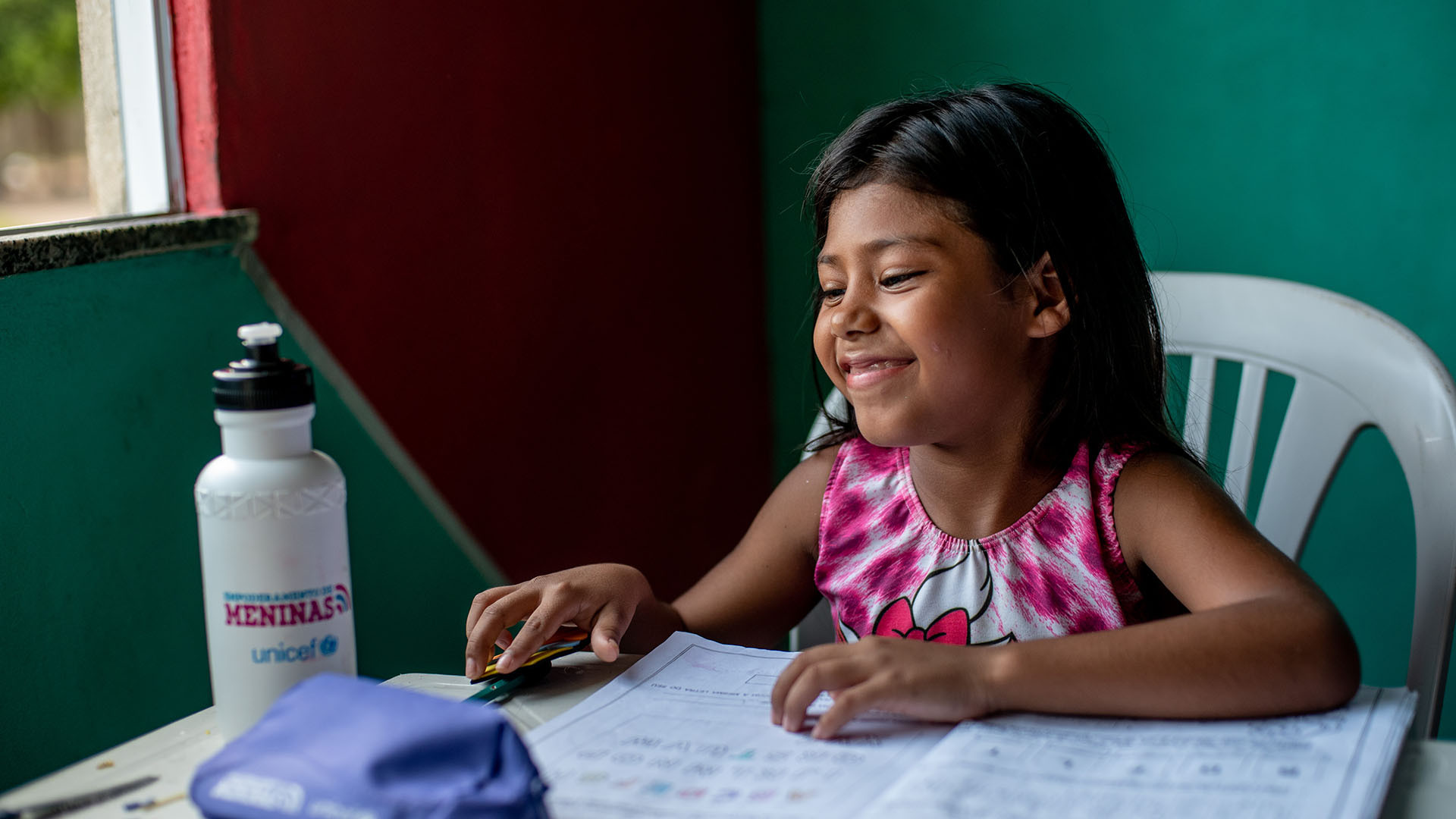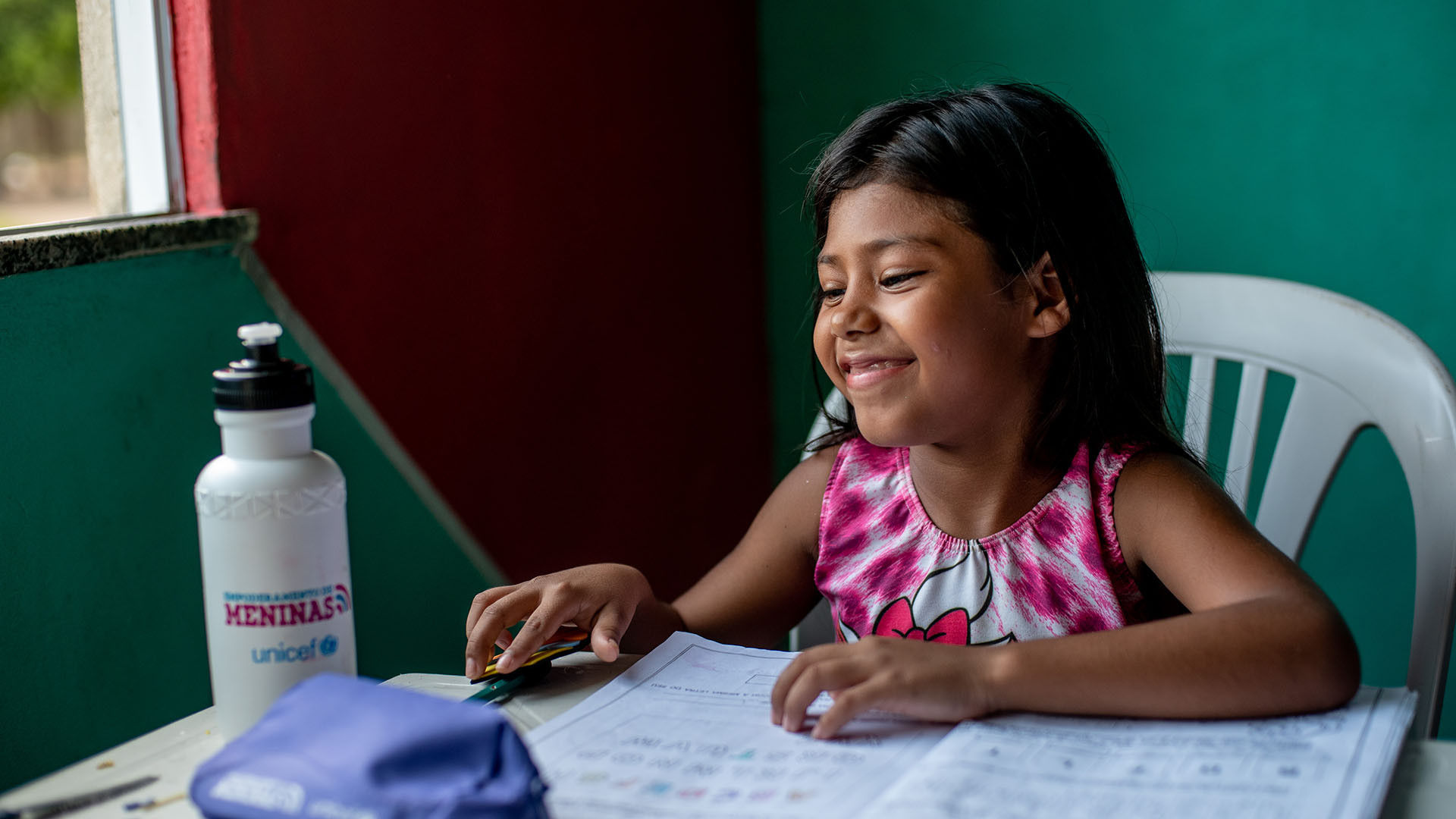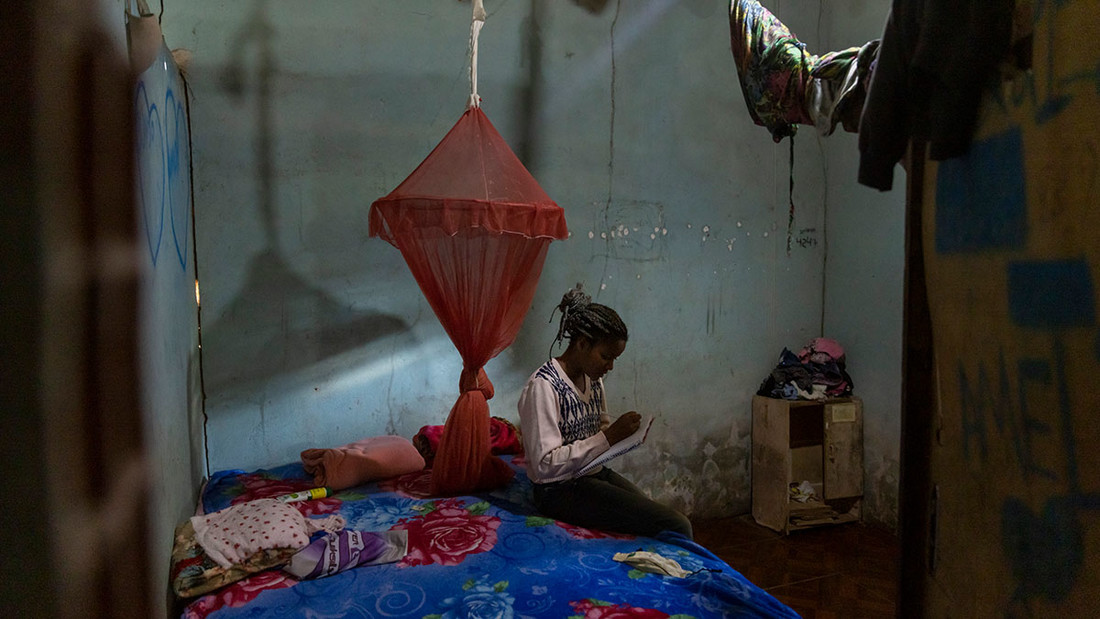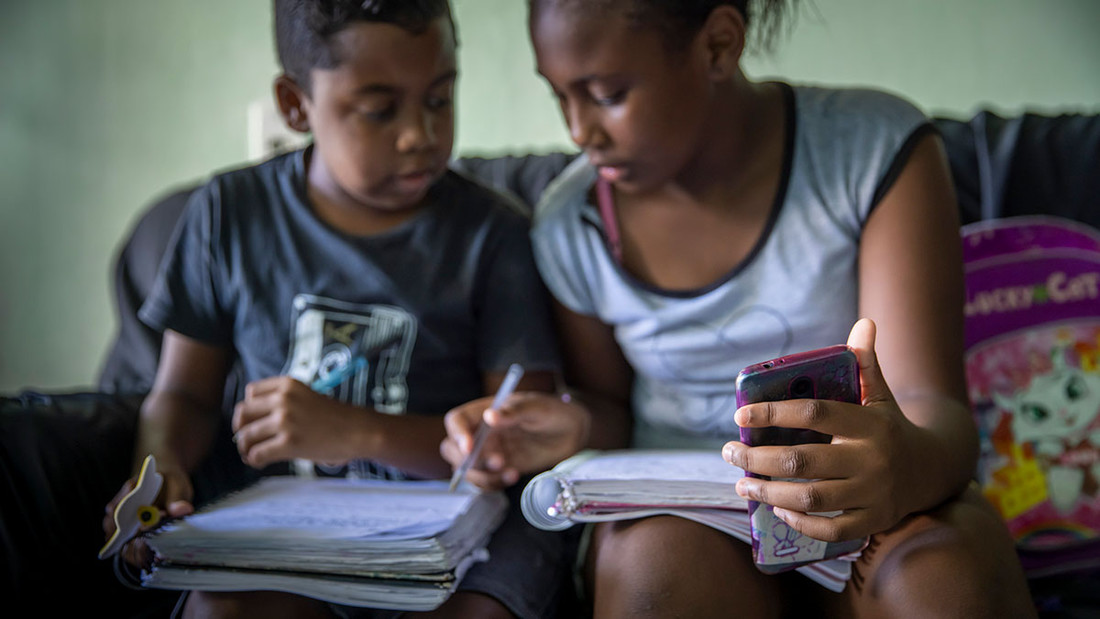Hundreds of thousands of girls and boys in South America’s largest country are being denied their right to education. Due to the pandemic and resulting school closures, more than 44 million Brazilian girls and boys were unable to attend school in 2020, and 5.5 million children and young people had no access to school activities at all,either in print or digital form, in class or remotely.

Ágata from the Amazon
To prevent school dropouts during the pandemic, teachers in the municipality of Vigia in the northern Brazilian state of Pará sought out every child who could not attend class. Eight-year-old Ágata was one of them. She had been out of school for a year and has now been re-enrolled so that she can continue learning remotely during the pandemic.
Children in Brazil’s north and in poor neighborhoods outside the cities, the so-called favelas, are particularly at risk of dropping out of school. Many children work to make ends meet, often under dangerous and exploitative conditions, keeping them away from school. These children are denied the chance to enjoy a sheltered and healthy childhood.
UNICEF Switzerland and Liechtenstein wants to help ensure that children between the ages of 7 and 12 in the Amazon region and in Rio’s poor neighborhoods receive a good education and stay in school. This includes modern teaching materials that are adapted to the children’s age and can be used both directly in the classroom and for online teaching. The aim is for teachers to learn how to use laptops, smartphones and the internet to deliver exciting lessons that children can participate in from home.


